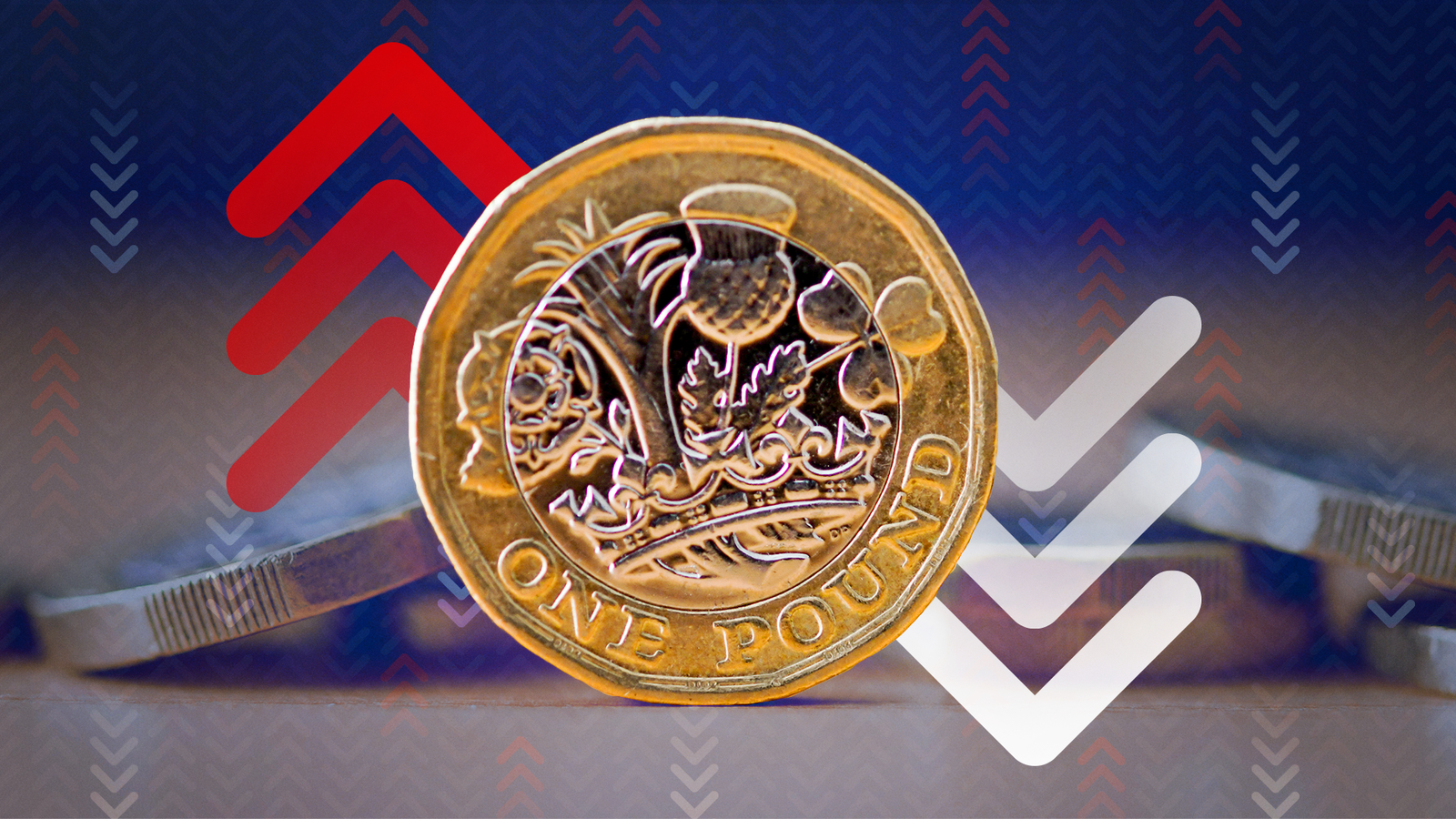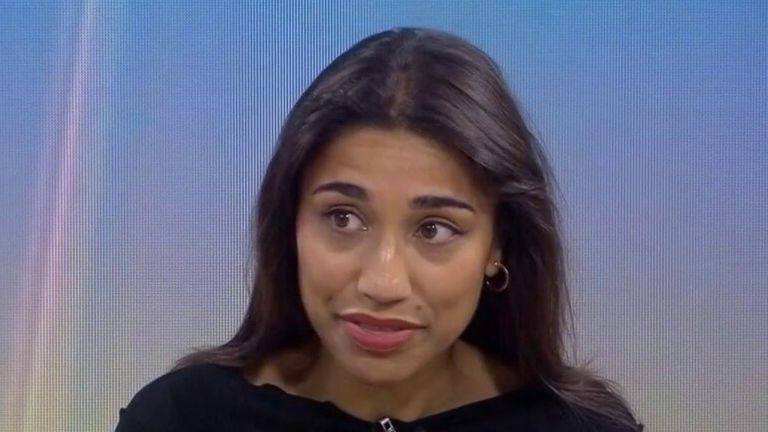The rate of price rises has fallen sharply, according to official figures.
The key, consumer price index (CPI) measure of inflation fell to 6.8% in the year to July, down from a rate of 7.9% in June, Office of National Statistics (ONS) data showed.
It means prices are still rising but at a slower rate than before.
Inflation came down as the some services became cheaper:
• electricity
• gas
The rate of inflation was still high due to price increases in:
• hotels
• air travel
Further inflation falls are expected, with the Bank of England forecasting the rate will drop to 5% by the end of the year, still more than double the Bank’s 2% inflation target.
Read more
Cost of living – latest: Inflation falls sharply after energy cost reduction
Another measure of inflation, which does not track items susceptible to sharp rises and falls, such as food and energy, was static. Core inflation remained at 6.9%, likely to be of concern for the people who decide interest rates, the Monetary Policy Committee members.
Food price rises remained seven times higher than a year ago at 14.9% despite a significant fall from the June 17.3% rate of food inflation.
The rate of inflation has taken on political significance. Prime Minister Rishi Sunak made halving inflation one of his five pledges and said it was “on me personally” if the goal isn’t met.
It’s the Bank of England, however, which is tasked with increasing interest rates to take make borrowing more expensive to take money out of the economy and reduce inflation. So far they’ve upped rates 14 times in a row with another increase due to come next month.
Prices began to rise during the pandemic when difficulty with goods supply chains pushed up costs.
This was worsened when Russia invaded Ukraine and energy prices soared as countries in the West competed for alternative sources of energy in their move away from Russian oil and gas.
The UK is now back at the rate of inflation seen before the invasion in February 2022.
As the cost of energy has come down, so too has the overall rate of inflation.
Now, a key driver of overall price rises is an increase in wages. For the first time in nearly two years, wage growth in the private sector surpassed the rate of inflation.
Responding to the figures, Chancellor Jeremy Hunt said: “The decisive action we’ve taken to tackle inflation is working, and the rate now stands at its lowest level since February last year.
“But while price rises are slowing, we’re not at the finish line. We must stick to our plan to halve inflation this year and get it back to the 2% target as soon as possible.”
Labour’s shadow chancellor, Rachel Reeves, said: “Inflation in Britain remains high and higher than many other major economies. After 13 years of economic chaos and incompetence under the Conservatives, working people are worse off – with higher energy bills and prices in the shops.
“Labour’s plan to build a strong economy will make working people better off by boosting growth, improving living standards and cutting household bills.”

